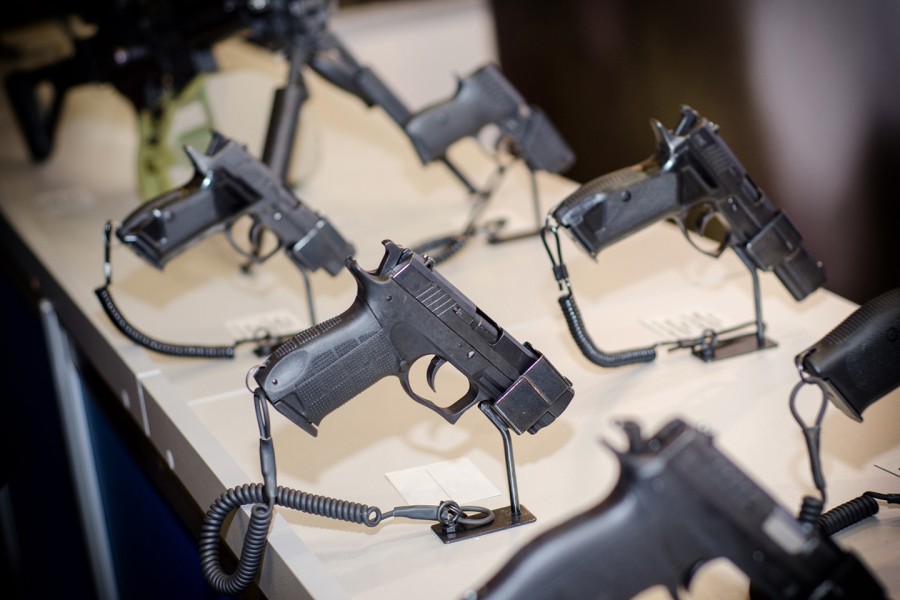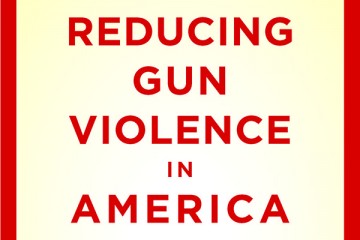- Name
- Alicia Samuels
- asamuels@jhu.edu
- Office phone
- 914-720-4635
- Name
- John Aspril
- jaspril1@jhu.edu
- Office phone
- 443-287-5054
State laws that require gun purchasers to obtain a license contingent on passing a background check performed by state or local law enforcement are associated with a 14 percent reduction in firearm homicides in large, urban counties, a new study from the Johns Hopkins Bloomberg School of Public Health found.
According to a fact sheet published by the Johns Hopkins Center for Gun Policy and Research, these handgun licensing laws—often called permit-to-purchase laws—typically require prospective gun purchasers to apply directly to a state or local law enforcement agency to obtain a purchase permit prior to approaching any seller.
These laws allow law enforcement officials to take more time in conducting background checks, and the background checks themselves typically contain more comprehensive information than the check system used by licensed gun sellers. These laws also restrict private sales of firearms by prohibiting any seller—licensed or unlicensed—from selling a firearm to anyone without a purchase permit. Many state licensing laws also require applicants to submit fingerprints.
Previous studies have shown that these laws are associated with fewer firearm homicides at the state level. This study—led by researchers at the Center for Gun Policy and Research, which is based in the Bloomberg School—is the first to measure the impact of licensing laws on firearm homicides in large, urban counties, where close to two-thirds of all gun deaths in the U.S. occur. Findings are published online in the Journal of Urban Health.
The study examined a sample of 136 of the largest, urban U.S. counties from 1984 to 2015. Analyses were conducted to assess the effects of changes to the policies over time.
States that only required so-called comprehensive background checks—and did not include other licensing requirements—were found to be associated with a 16 percent increase in firearm homicides in the large, urban counties. In such states, gun sellers or dealers, not law enforcement, typically carry out the background check.
"Background checks are intended to screen out prohibited individuals and serve as the foundation upon which other gun laws are built, but they may not be sufficient on their own to decrease gun homicides," said Cassandra Crifasi, an assistant professor with the Center for Gun Policy and Research and the paper's lead author. "This study extends what we know about the beneficial effects of a licensing system on gun homicides to large, urban counties across the United States."
Previous research examining the impact of background check–only laws has documented the importance of enforcement and compliance, but problems with the commonly used National Instant Criminal Background Check System include incomplete records and poor quality and timeliness of reported records. Comparatively, permit-to-purchase laws provide a longer period for law enforcement to conduct background checks, and the checks themselves may include more records, increasing the likelihood that law enforcement can identify and screen out those with a prohibiting condition. Surveys from the Center for Gun Policy and Research find that the majority of both gun owners and non-gun owners support this policy.
The study also examined the impact of right-to-carry and stand-your-ground laws. Stand-your-ground laws give individuals expanded protections for use of lethal force in response to a perceived threat, and right-to-carry laws make it easier for people to carry loaded, concealed firearms in public spaces.
The researchers found that counties in states that adopted stand-your-ground laws experienced a 7 percent increase in firearm homicide, and counties in states with right-to-carry laws experienced a 4 percent increase in firearm homicide after the state's adoption of the law.
"Our research finds that state laws that encourage more public gun carrying with fewer restrictions on who can carry experience more gun homicides in the state's large, urban counties than would have been expected had the law not been implemented," Crifasi said. "Similarly, stand-your-ground laws appear to make otherwise non-lethal encounters deadly if people who are carrying loaded weapons feel emboldened to use their weapons versus de-escalating a volatile situation."
Posted in Health, Politics+Society
Tagged gun policy, firearms, center for gun violence solutions











